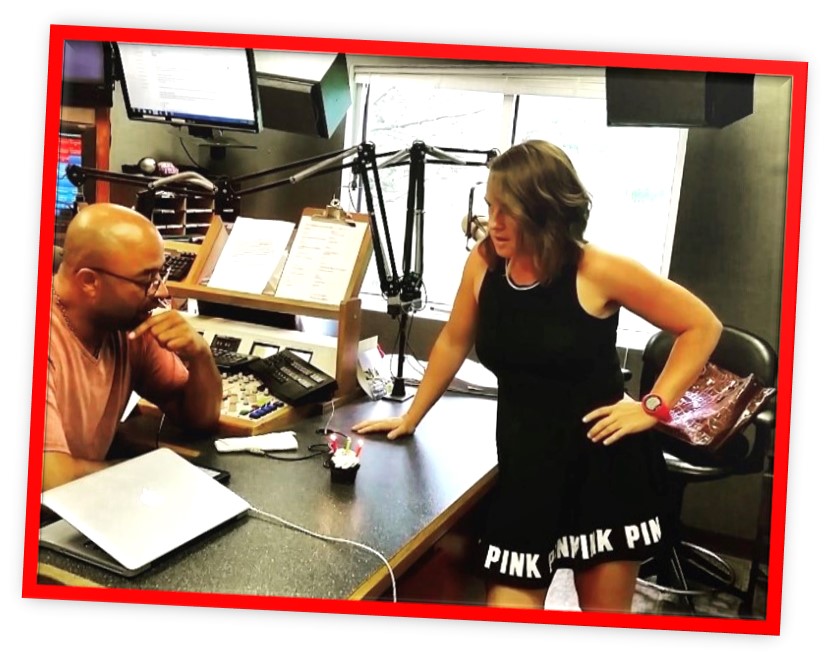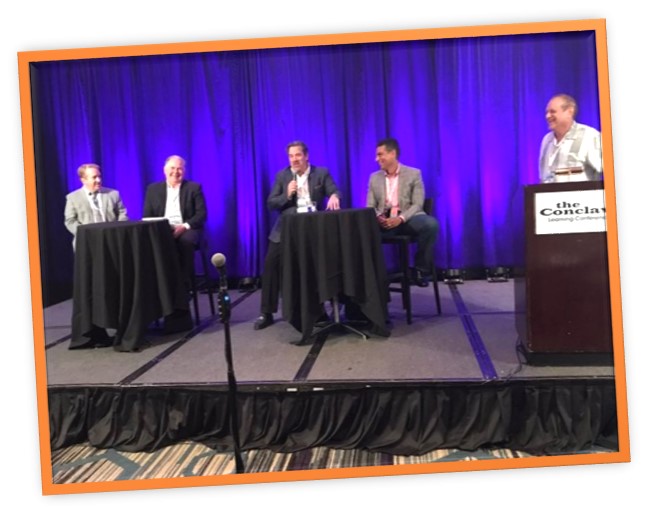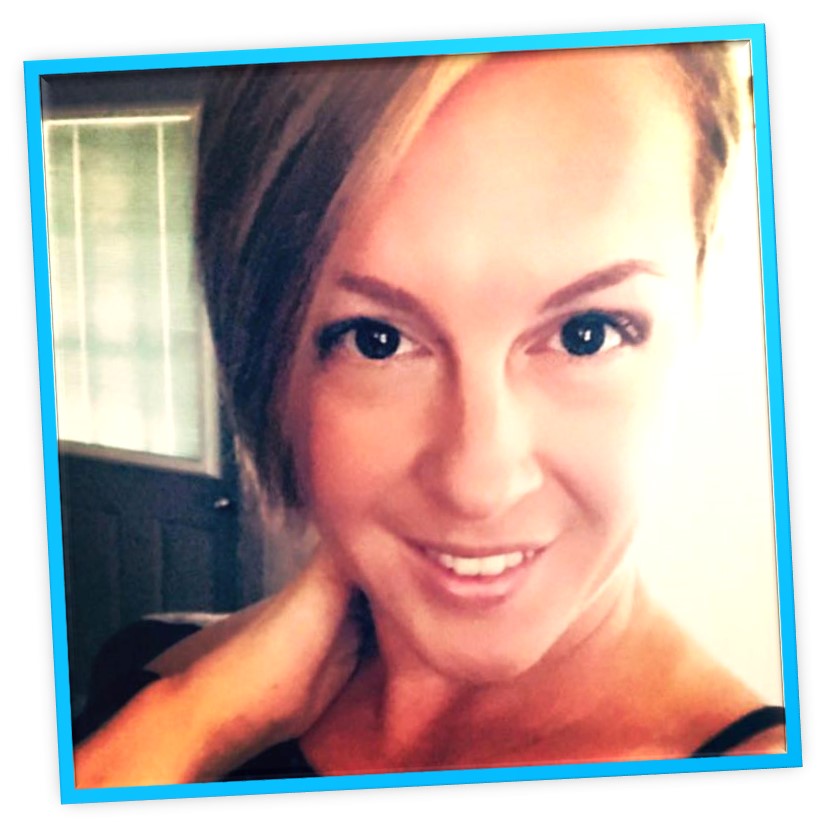
You learn a lot about radio and where it’s headed when you attend industry conferences. For me, it’s a fascinating window to the radio business where I get to see numerous sessions, while spending time with people in all walks of radio life. During the past two weeks, I’ve been fortunate enough to attend both the Conclave and the Morning Show Boot Camp. Both events share some common themes – especially the element of youth in radio.

At Conclave, the very first event on the schedule – “Ask Me Almost Anything” – was a strong one. It featured iHeartMedia’s Kevin LeGrett, Hubbard’s Greg Strassell, Cox Media Group’s Bill Hendrich, and Cumulus’ Peter Bowen. Moderated by AllAccess publisher Joel Denver, the panel did a great job of navigating some good questions, and providing candid responses about all things radio.
Then the first question came from the audience – and it was a blockbuster. WZOK morning co-host, Mandy James, stepped up to the mic, and asked:
“If you could change one thing for women in radio, what would it be?”
And there was a moment of silence from the all-guy panel on stage. Then the execs pointed to the obvious – many of their own companies are run by women. Ginny Morris, Kim Guthrie, and Mary Berner were quickly mentioned. And of course, other names came to mind, too. Mary Quass, Weezie Kramer, Caroline Beasley, and several others who are shining examples of the changing power center of the radio industry.
But Mandy’s question was more focused on her milieu – the air studio. She’s a Minnesota native who got her first job as a polka DJ on an AM  station in Denison, Iowa. Mandy has worked her way up to the morning co-host role with veteran Steve Shannon at WZOK/Rockford. She’s wondering what’s next for a personality in her position, and what upward mobility looks like for female DJs and personalities.
station in Denison, Iowa. Mandy has worked her way up to the morning co-host role with veteran Steve Shannon at WZOK/Rockford. She’s wondering what’s next for a personality in her position, and what upward mobility looks like for female DJs and personalities.
And as Mandy looked around the Conclave room, she noted that “the one thing that was really lacking was a female presence.” She later told me that she loves “hearing about the success of women in our industry,” but says women in radio “feel like they are second-class citizens, aren’t taken seriously, are left out of management conversations, don’t get credit for their success, miss out on endorsement opportunities because they aren’t the host of the show, get paid less, and handle most of the workload.”
Whew – that’s a list.
Now, the other side of the conference coin was Morning Show Boot Camp. And while I didn’t do a hard count of the room, it felt to me like women may have actually outnumbered men attending the conference. During his interview with Ginny Morris, Scott Shannon looked around the room, and observed how encouraing it was to see so many women in the room.
And it wasn’t difficult to get a sense for what appears to be an industry shift – not just in the corner office, but in the air studio. Mercedes (“Mercedes in the Morning” on Las Vegas’ Mix 94.1) addressed that issue. And she shared the stage with Murphy, Sam, & Jodi – a syndicated show where the show’s female – Jodi – is the center of its universe.
Ginny Morris also talked about her company’s often challenging journey with myTalk in her home market – a station geared toward women and entertainment.
But the outstanding issue revolves around opportunity. And from Mandy’s perspective, some of same questions linger about where radio is headed when it comes to on-air opportunities for women.
As she told me, “I’m not saying every program director or GM should go out and give every woman at their station a promotion or a raise, but maybe start by advocating for a co-host who wants more air time or an endorsement; if someone asks for the opportunity to learn more about what you do, try to give them some of your time instead of making them feel like they’re just being pushy. The truth is, this isn’t just about putting women in upper management or giving them more air time; we’d all love that, but what the majority of women in this industry want the most, the one thing they would change, is to just be treated like an equal.”
My bet is that every executive in radio – from the corporate office to market managers to PDs want to win and doesn’t care who’s sitting behind the mic. Talent is talent, and the radio industry never has enough.
But whether the playing field in the studio is leveling is the driving question that Mandy expressed at Conclave, and it came up at various times at Boot Camp. It’s a complicated issue with lots of moving parts.
So, what’s your take?
- Like A Pair Of Old Jeans - April 2, 2025
- What’s Fair Is Fair - April 1, 2025
- What’s On Your Bucket List? - March 31, 2025




KIIS FM has not been #1 in the 22 months since Seacrests’ co host,
Ellen K left for her own show on KOST — And she has been #1 6+ in those same 20 months. How does that happen in the #1 radio market and not be apart of this particular conversation?
I think you just made it part of this conversation. Thanks for chiming in, Roy. I expect we’re going to hear from a number of examples.
There appear to be some signs that this is finally changing. Here at Hubbard Phoenix on Alt-AZ 93.3 KDKB we launched the MO! Show this past spring. In that time she has improved the 18-34 rank from 10th to 4th. Great talent transcends gender.
MO! is a great example of the industry “turn” – and she’s perfect for the ALT AZ brand. It’s about talent and a great fit for a radio station. David, as you point out, it starts with being open-minded to the beset candidate in the room. Thanks for commenting.
Let’s go back to the late 80’s, early 90s. Beth McDonald had been the morning co host at KESZ forever (dating back to when it was KLZI.) So yet another guy leaves for another gig. The GM, Jerry Ryan, gets a TV weather guy from across town to fill in for a week while they search for a new host. But before the end of the week it’s clear: they already have their new morning show. Beth is the lead. The weatherman, Bill Austin, assumed the role that the female in the traditional morning show naturally and the chemistry was real. Mornings with Beth & Bill owned women 25-54 up until Austin left the show before his passing, and Beth still is the lead performer on the show today, still pulling in the audience. I got to watch them work a few times and there were no prep sheets, just newswire clippings from that morning to ad lib from.
Listening to that made me despise every morning team where the woman’s job is to giggle and say “oh, stop” to the male host. Let strong women kick ass for your station. The audience will reward you.
John, this is another great story, and one that illustrates how happenstance led to the creation of a great show – rather than it be driven by sheer talent. Radio operators, programmers, and (yes) consultants often lament the lack of available personalities around the country. And you have to wonder how many truly talented people are already working inside the building, going “undiscovered.”
I work with the most talented air personality in the world and she is a woman Roula from the Roula and Ryan Show is not only the star of our show, but the heart and soul. For 14 years we’ve been on top in Houston ratings and I know Roula is the main reason. More consultants and PD’s should learn from people like Roula and Mercedes. Strong women who prove everyday they can do radio better than anybody no matter what gender. They are. I feel that the tide might finally be turning. Love the article
Eric
Eric Rowe
Executive Producer
The Roula and Ryan Show.
Eric, thanks for the great story about Roula. I suspect there are lots of these stories throughout radio – often going untold. Appreciate you sharing this one.
I can remember when women on the air were almost close to zero and that is not so far in the past. The first major market FM female dj, I believe, was the great Alison Steele on WNEW FM in New York. Her on the air handle was,THE NIGHT BIRD. Then the great Rachel Donahue and Dusty Street in San Francisco. When you heard these talented women on the air they were great radio personalities not just a gender.
They were great jocks regardless of gender, as you point out, Dan. We have come a long way since those early FM radio days. Thanks for the comment.
I feel like Mandy is in a different situation then just females that are trying to make their mark in radio. It’s very difficult to come into an already well oiled show with a host that has been a fixture in the community for decades. The host will remain the star in that situation with the co-host adding their own unique personality. For a strong female personality, I see how that could be difficult.
I truly believe there is a difference between trying to get equal air time, and trying to learn the different facets of radio in order to move up the ranks. That is the same for men and women. Most strong female leaders in radio, in fact, have never done a morning show. Some have never even been on the air. It’s about business sense and how to, not necessary need the spotlight on YOU, but on your station and your brand.
As a female, I’m not certain I believe in the point that “women might not be given the same opportunities as men”. In every successful station, there are people that want to win. That’s the drive. I’d almost bet that over 90% of upper management would hire a woman based on her talent because they see that gift. That adding her will help the station succeed.
Now, I’ve been in a position where I was with the maybe less than 10%. A male leader that made it very well known to me that as a female, I shouldn’t be in a management position. That was rough.
I certainly can’t speak for everyone, but I believe we are in this competitive business to win, yes, but to also do amazing things for the communities we are in.
I suppose your next article could be about local radio v. Syndication. Particularly in morning drive. I’ll look through the archives to see if there is already one you’ve done.
I have to tell you, Fred.. You are an inspiration to so many and for you to take your time to mentor (especially) the younger generation of radio, is commendable. You’ve seen the vast changes of radio, and you still manage to bring it home and touch everyone in this industry. It was my great pleasure to meet you at Conclave last year, and I do hope our paths cross again. Until then, thank you for the knowledge you share in these articles!
Tara, thanks for the reminder that passion and drive can overcome many obstacles. Still, not everyone is “enlightened,” and old habits sometimes die hard.
Not sure if I’ve tackled the local radio vs. syndication argument lately, but over the last 13+ years, it’s probably come up a few times. It’s a great topic.
And thank you so much for the kind words. Means a lot, and I’m glad we had a chance to meet. All the best to you, and thanks for reading the blog.
At the absolute peak of the success we had at WFBQ, I Iooked around the table at a Department Head meeting and noticed that most of the leaders in the room were women…
Including a number of minorites as well.
That was the proudest moment I’ve ever had in this business.
Marty, I totally get that. We’ve talked a lot about the diversity of stations & strategy setting in the conference room. Radio needs all the brain power it can muster. The number of women managers, owners, and corporate leaders is growing in radio. Thanks for the comment.
I’m coming up on my 20th anniversary of leading mornings on WBNQ-FM a Top 40 station in Illinois. When I was previously working other stations/shifts, I would volunteer to do fill ins for the morning show whenever they were off so I could create resume tape. In 97, while working nights in Sacramento, I started applying for Lead AM positions exclusively. I could not find any other examples of women in that role at that time. The responses from PD’s wondering if I could “also do news and come see if I clicked with their guy” was strong, but only one, very young and newly named first time PD in a small market, offered me an interview. I had 7 years of full time solo work in medium to large markets on my resume and one great question for anybody that doubted the concept. “If Oprah can attract countless fans on TV, why can’t a woman do that on the radio?” . It worked. I had to play hardball with the owner’s son during negotiations to get the same pay offered to beginning sales team members, but I got the job, and had the privilege of choosing my male sidekick (who did news and sports). We took the station (and the morning show) from 3rd to 1st in less than 2 years. My dream came true! But after year 10, when my loyal cohost was a budget cut during corporate bankruptcy , the real pressure was on. Could I keep it together with new cast members , or was it the chemistry of our duet that made it work? It was like starting the show all over again. This time I didn’t get to approve the new cast members, and when my fourth new PD arrived , with the desire to see himself in my shoes, it was a battle for survival indeed. (I eventually won, and stopped putting anybody else’s name in the damn show title).
So what is the lesson in my story? It can be done if you enter the mindset of being lead, job hunt to be a lead, and don’t expect to rise into that position at your current station from anything else. A janitor can become CEO of his company, and there will still be people there who perceive them as the trash person. Perception of competence is everything. Both men and women in co-host positions have unanswered questions about pay equality with the lead host. There are no true 50/50 power scenarios in morning show. Is it due to experience and longevity? Is one truly more important than the other on the air? Does one do all the grunt work while the other does 4 and the door? All problems that lead to a show having underlying resentments that give management power to keep you in their house on their timeline. Contracts aren’t done as a team, but with individuals. Non competes and a host of other tiny print legal ease has made it rare for a complete show to be able move onward together. (That’s when equal pay has a chance to happen because you are starting somewhere together).
I am very pleased to see many other women succeed in the lead role, but many of them got there by default. You know, guy leaves and she stayed long enough to get lead billing but doesn’t ever get the same money. GM is happy because they saved money, and now she is working two jobs with no raise. I don’t know how to fix that complaint, but if you are a woman reading this, you aren’t alone. IMO, the only way to get up is to make that climb yourself through new jobs where you are perceived as a leader from day one.
I love radio and my current station is home. (Can I mention after years of female GSM’s , I got a brand new female GM? It rocks FYI)
Susan, this is a great story and I appreciate you taking the time to tell it. For many women who have made it on the air, I suspect most have a story not unlike yours. You don’t just end up in the captain’s chair making the big money. It has to be earned, and as you point out, there will often be struggles along the way. If you’re a woman, it’s even more challenging. And your journey to success is a great object lesson for the many women striving to accomplish similar goals. The industry is becoming more enlightened every year, and as more women occupy the corner offices, progress may come quicker. Thanks again for sharing the journey, and congrats.
Viva Susan! You’re a star!
– The now not-so-young PD that was lucky enough to hire her back in the day
J. Pat – so it was YOU! Thanks for chiming in.
And I could not possibly be more greatful to have J.Pat (and Abbey!) in my life.